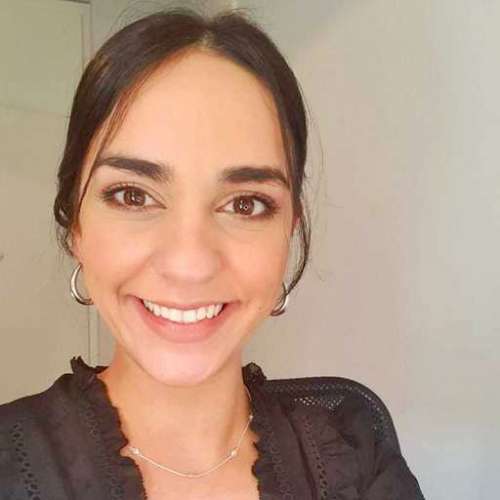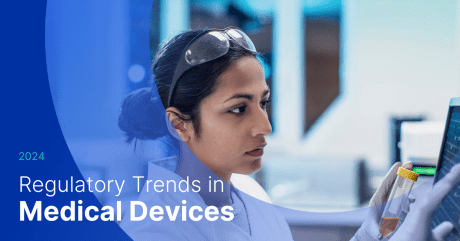
Registration of Medical Devices in Israel – Recent Updates

This blog was originally posted on 26th April, 2024. Further regulatory developments may have occurred after publication. To keep up-to-date with the latest compliance news, sign up to our newsletter.
Overview of Recent Updates
On April 15, 2024, the Israeli Ministry of Health introduced additional changes to the registration process for medical equipment, responding to recent updates in European regulations, with the overall aim of aligning Israel’s regulatory framework with evolving international standards.
To facilitate the transition to the new regulations, the European Union published Regulation 2023/607 in March 2023 which extends the validity of certain regulatory approvals granted under previous European directives, providing a grace period for compliance with the new regulatory landscape.
In line with EU Regulation 2023/607, Israel’s Medical Equipment Division will allow an extension of validity of certain regulatory approvals issued under previous European directives, provided they meet specific conditions. These conditions include adherence to the requirements of the old European Medical device Directives, no significant changes to the equipment or its intended use, implementation of a quality management system by May 2024, and a signed contract with a notified body in place before September 2024. The validity of approvals for certain in vitro diagnostic (IVD) devices is extended under EU Regulation 2022/112, subject to similar conditions.
AMAR Scheme
Israel’s Medical Device Division (AMAR) of the Ministry of Health in Israel, also introduced a scheme in August 2023, including the introduction of a self-declaration route for low-risk equipment already registered and marketed in recognized countries.
As part of this scheme, specific guidelines were provided in December 2023 for registration renewal and change notifications, along with clarity on recognized countries for registration purposes.Specifically, thenew scheme from the Ministry of Health aims to streamline the regulation of registration and import of medical accessories and equipment into Israel. This new scheme is expected to significantly reduce bureaucratic hurdles and registration times, particularly for medical devices classified as low to medium risk.
It includes the following points:
- Class 1 Devices – Declaration Route: Registration for devices in this category, considered low risk, will be based on annual self-declaration, simplifying the process.
- Class 2 Devices – Notification Route: By 1 October 2023, the Ministry will compile a list of medium-low risk devices in this category for which registration will be possible through a declaration (notification) process. This will be effective within 14 days, provided the device has recognition from at least two authorities and has been marketed for at least six months.
- Class 2 Devices – Accelerated Route: Around 80% of Class 2 devices with FDA approval and six months of US market presence will qualify for accelerated registration, allowing registrations within 60 days of submission.
- Class 3 Devices – There will be no change in the registration process for devices in this highest-risk category.
The scheme also covers general rules and principles governing registration, including validity, labeling, import permits, and timelines. Renewal and change procedures for registered products are outlined, with renewal based on declaration for Class 1 and notification for Class 2 and 3 devices. Significant changes will require registration within 60 days.
Renewal Process for Medical Device Registration
The renewal process for medical device registration varies by class:
- Class I: Renewal is conducted through self-declaration via the portal, requiring updating regulatory approvals, signing a self-declaration document, providing a marketing follow-up report, and declaring no adverse events.
- Class II: Renewal is based on a signed declaration and submission of a renewal request, including uploading current regulatory approvals, declaring continued marketing, providing manufacturer’s ISO certification, and declaring no malfunctions or adverse events.
- Class III: Renewal is based on submission of a renewal request, with documentation of post-marketing steps required. Additional documents are necessary in case of malfunctions or adverse events during the registration period, with immediate reporting if approval is revoked in recognized countries.
Declaration details for Class I products include product name, unique identifier, intended use, equipment labeling, manufacturer and supplier information, declaration of reliability and compliance, along with relevant documents like regulatory approval. Registration holders must annually declare the validity of provided information.
In September 2023, AMAR implemented a revised method to regulate Class I medical devices called the declaration route, which is now integrated into the online registration process.
Declaration route launched for Class I or Low-Risk IVD Laboratory Devices under the declaration route
In January 2024, AMAR published a guidance document on the registration of Class I Medical Devices or Low-Risk IVD Laboratory Devices under the Declaration Route.
Instructions for submitting new registrations for Class I devices:
Applicants are required to submit both the application (available as a template on the Ministry of Health website in PDF format) and the relevant evidence (provided in a ZIP file consisting of five folders).
The ZIP file structure and contents are as follows:
- Submission Letters: Includes the declaration letter template available on the website, outlining the applicant’s intent and duly signed.
- Regulatory Authorizations from Reference Countries: Documentation of appropriate authorizations from reference countries.
- Importer Documents: Quality Management System (QMS) certificate of the importer.
- Manufacturer Documents: Quality Management System (QMS) certificate of the manufacturer.
- Labeling: Instructions for Use (IFU), labeling, and catalogs.
Renewals and changes for Class I devices are also processed as declarations through the system. For yearly renewals, the following must be submitted: the renewal form template from the website (in PDF format), an annual declaration, and current reference country authorizations.
The information required for a change application for a Class I medical device is similar to that of a new registration.
- The guidelines provide specific instructions on naming the PDF and ZIP files. Failure to adhere to these instructions will lead to application rejection.
- Upon successful submission following instructions, the applicant will receive an email acknowledgment within four hours. The registration confirmation from the Ministry of Health will be dispatched to the applicant within 48 hours.
AMAR continues to waive fees for new, renewal, and change applications for Class I devices.
Here is a link to forms regarding the import of medical devices to Israel.
References:
- EU: Medical Devices, Regulation (EU) 2017/745 and Others – Amendment – (on transitional provisions for certain medical devices and in vitro diagnostic medical devices) Regulation (EU) 2023/607
- Israel: Medical Devices Reform, Implementation Plan, August, 2023
- Israel: Protocol for Formulation and Form of Registration Certificate in the Medical Equipment Registry, REG-2023/05
- Israel: Medical Devices Import Reform, December 2023
- Israel: Registration of Class I Medical Devices or Low-Risk IVD Laboratory Devices under the Declaration Route, Guidance, January 2024
- Conditions for registering medical equipment based on regulatory approvals from Europe that have been extended during the transition period to the new European regulation, April 2024
- AMR registration (medical accessories and devices)
Stay Ahead Of The Evolving Regulatory Landscape in Medical Devices:
Unlock Market Access
Accelerate your ability to achieve, maintain & expand market access for all products in global markets with C2P – Your key to unlocking market access, trusted by more than 300 of the world’s leading brands.
C2P is an enterprise SaaS platform providing everything you need in one place to achieve your business objectives by proving compliance in over 195 countries.
C2P is purpose-built to be tailored to your specific needs with comprehensive capabilities that enable enterprise-wide management of regulations, standards, requirements and evidence.
Add-on packages help accelerate market access through use-case-specific solutions, global regulatory content, a global team of subject matter experts and professional services.
- Accelerate time-to-market for products
- Reduce non-compliance risks that impact your ability to meet business goals and cause reputational damage
- Enable business continuity by digitizing your compliance process and building corporate memory
- Improve efficiency and enable your team to focus on business critical initiatives rather than manual tasks
- Save time with access to Compliance & Risks’ extensive Knowledge Partner network
Stay On Top Of Your Changing Regulatory Obligations
Tell us your compliance challenges and we will find the solution that’s right for you.
Author

Yasmin Ali, Regulatory Analyst, Compliance & Risks
Yasmin joined the Global Regulatory Compliance Team in Compliance and Risks in March 2021. She keeps clients up to date on global regulatory developments, which involves helping clients to ensure that the products they make and sell on the market are safe and compliant, with a particular focus on medical devices.
Prior to joining Compliance and Risks, she worked in Israel as a lawyer for 5 years, and at the Israeli Ministry of Justice as an assistant attorney. Yasmin graduated with a Bachelors in Law in Israel and holds the Israeli Bar exam.



